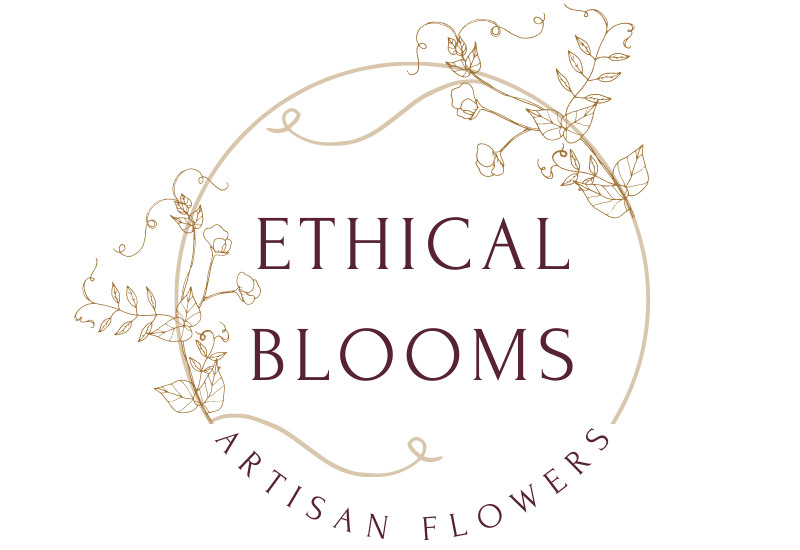Making a positive impact on the eco-system with flowers you buy
Ethical choices
It makes sense to start at the beginning, why growing flowers sustainably and ethically is my thing. I’m guessing by your interest you are curious or already try and shop ethically. I say try as its hard. We are bombarded by advertising, marketing & gimmicks, and me, like any normal person can be sucked in without thinking about the consequences of my purchase.
When I decided to start Ethical blooms, it made sense to me to grow in the same way I had been growing vegetables for years. I wanted to enhance the wildlife in the field, and I like you know about the effects chemicals and agriculture have on pollinators.
Add in, my own values about supporting local, minimizing single-use plastics, and shopping so I have minimal impact on the earth’s resources and the people that make the product. I have, when shopping for household items or utilities, been a big fan of Ethical consumer to guide me to make fair and equitable choices.
When I started growing cut flowers, I joined Flowers from the Farm, ( a cooperative of British flower growers. Being a member opened my eyes even further to the downside of buying imported flowers. I view flowers as a luxury item, yet I know the value they have, lifting someone’s spirit; making a house a home; sending a message of hope and happiness.
This blog isn’t about making you feel bad, believe me, there are items I buy which are not made ethically. It’s about giving you options to think about the impact of the flowers and whether you can shop differently. With 90% of cut flowers coming from abroad and British companies offering these flowers by post, buying flowers that have a greater impact on the environment is easy.
The impact of imported flowers
Research & horticultural studies on imported flowers are not easy to find yet they tell us a story that we can all make a choice to change:
The carbon footprint for me to fly from Bristol to Rome is about the same as the carbon emissions produced from 10 Kenyan Roses imported to the UK. (And yes, those David Austin Roses may be British grown, in Kenya).
Flowers can be grown in inefficient heated greenhouses under lights and then refrigerated for their journey here. Adding more to their carbon footprint.
Single-use plastics from the wrapping flowers arrive in, to cellophane and ribbons are all commonplace. Valentine’s day is a prime example, all those single stems, plastic-wrapped, imported and unscented roses. (Almost all Satin ribbons are made from plastic).
Chemical pesticides for flower growing are widespread and under less strict legislation than those used in vegetable production. These chemicals damage the fragile eco-systems where they are grown, entering watercourses, and polluting the land.
Add to these fungicides and preservatives to make flowers last longer. These allow those flowers to travel from Africa and South America and still give you some vase life.
Floral foam (a single-use plastic) used in arrangements for weddings and funerals breaks down to tiny particles that harm the environment and aquatic life.
The growers themselves, often not paid a living wage, must live with the consequences: no fair access to clean water & unsafe working environments, including toxic chemicals which have been shown to increase birth defects and chronic breathing problems. War on Want have spelt the consequences out clearly.
The British flower market
With many artisan British flower growers in the UK (almost 900 members of Flowers from the Farm) buying local flowers, grown with sustainable methods has never been easier.
You may pay more for your blooms because the Dutch government give their flower growers subsidies to allow us to buy cheap imported blooms. But given a choice to support local farmers, who produce high-quality stems without intensive and harmful agricultural practices, I would say it’s a no brainer. Florists who buy flower buckets from me consistently give me positive feedback:
I was totally in awe of her beautiful patch and the size of her ranunculus and anemones!
Grace, Bramble and wildI cannot wait to use her flowers this year and next in weddings!
Sophie, The Foraged Flower Co
And customers time and again tell me about the vase life of my blooms…
Your flowers last amazingly. We have had them for 10 days and they still look and smell beautiful.
Andrea
If you do buy from the high street look for a Fairtrade sign or a union jack. Of course, organic is better, probably for your health as much as the workers. And these days, with the increase of British flower farms the availability of British blooms is year-round.
If you do buy from Ethical blooms you can be assured of:
Biodegradable flower sleeves (made from recycled paper in the UK)
Compostable flowers with twine
Natural insect sprays (excluding Neem oil that kills bee larva) and no fungicides
Encourages natural predators to keep pests down
A flower farm that increases biodiversity and where possible harvests rainwater for watering
Aromatic flowers with great vase life which cannot easily be imported.











